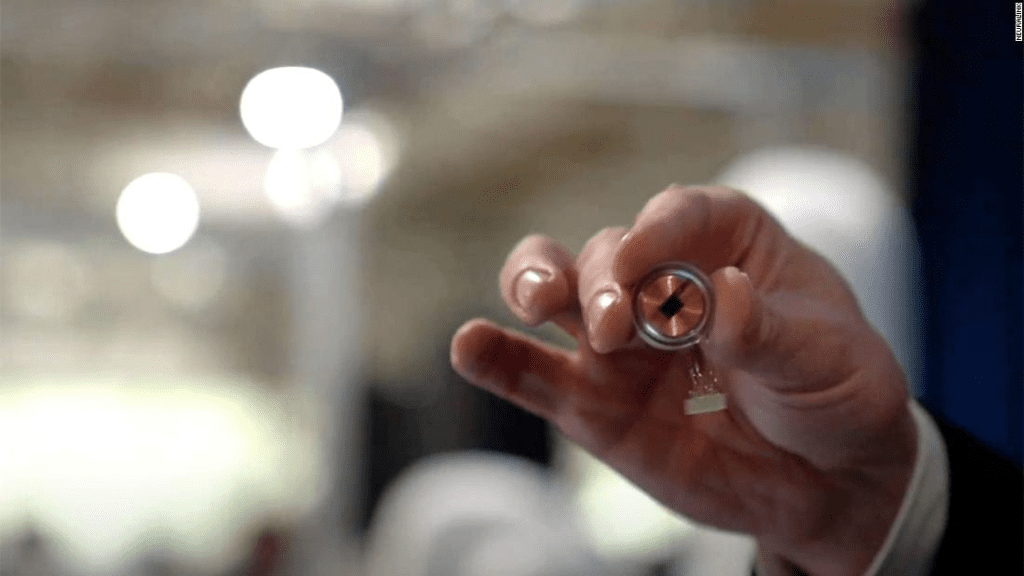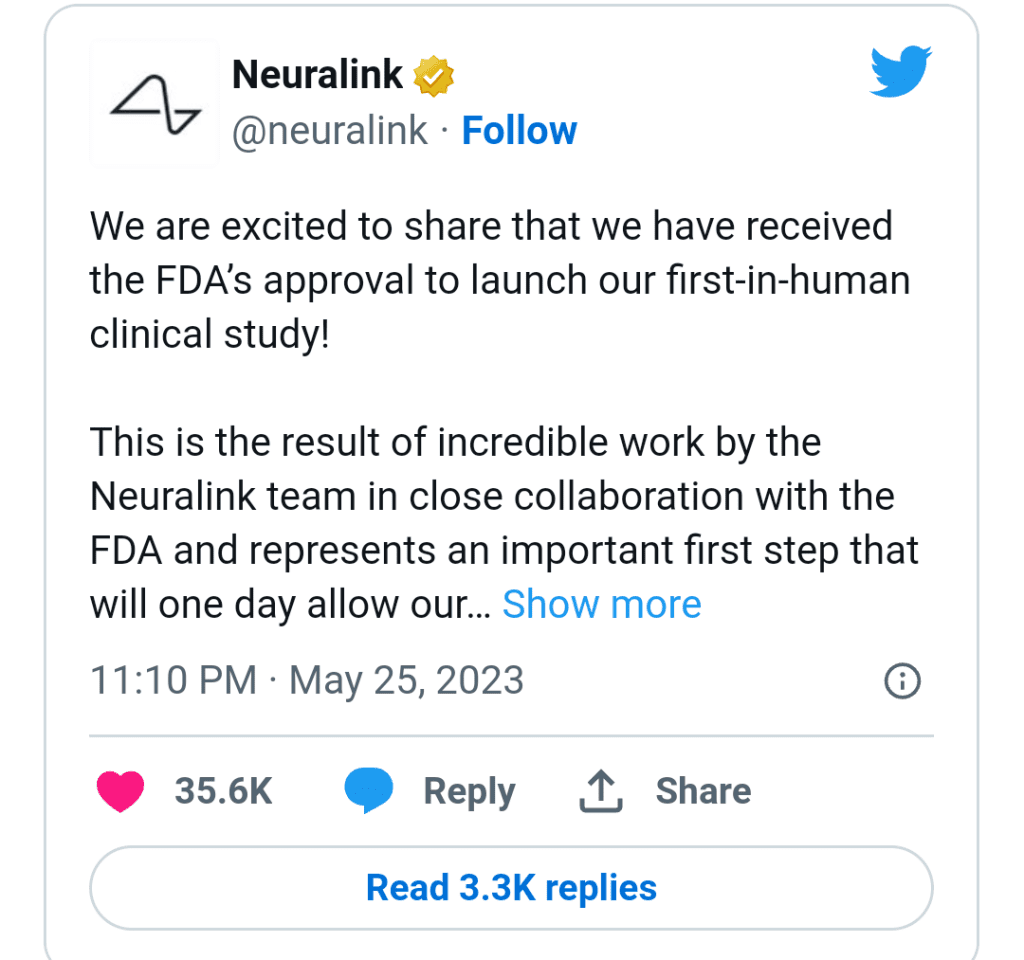
Neuralink, the brain-implant company founded by Elon Musk, has received approval from the U.S. Food and Drug Administration (FDA) for its first-in-human clinical trial, marking a significant milestone for the company.

In a tweet on Thursday night, May 25, Neuralink expressed that the FDA approval is an important initial step that will pave the way for their technology to assist numerous individuals, without providing specific details about the study’s objectives.
Neuralink envisions that their brain implants could potentially treat various conditions such as obesity, autism, depression, and schizophrenia. Furthermore, the company believes these implants could also enable functions like web browsing and telepathic communication.


During the development process, Neuralink conducted testing on macaque monkeys by utilizing Bluetooth-enabled implantable chips inserted into their brains. These chips allow communication with computers through a small receiver.
READ ALSO-
In April 2022, Neuralink released a video showcasing a male macaque named Pager playing Pong, a computer game, solely using its mind to control the cursor on the screen, without the need for a physical joystick.
Elon Musk attracted attention when he expressed confidence in the safety of the Neuralink devices, going so far as to state his willingness to implant them in his own children.
Although Musk had previously predicted Neuralink’s human trials on multiple occasions since 2019, the FDA rejected the company’s application in 2022. The FDA had raised concerns to Neuralink that required addressing before approving human trials.
These concerns included issues related to the lithium battery of the device, the possibility of the implant’s wires migrating within the brain, and the safe extraction of the device without causing damage to brain tissue, according to employees familiar with the matter.



